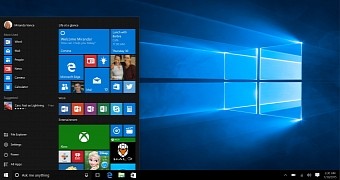Windows 10 is no longer offered as a free upgrade to Windows 7 and 8.1 users, but this doesn’t mean that Microsoft’s problems related to the new operating system are over, as there’s still a significant number of users who experience issues after installing it.
Consumer rights group Which? issued a public statement regarding the way Microsoft handled the Windows 10 upgrade, pointing out that there were plenty of users in the United Kingdom who complained not only of problems that showed up after installing the new OS, but also of the support services Microsoft offered post installation.
“Once installed, people reported various problems, including printers, wi-fi cards and speakers no longer working with their PC; instances of lost files and email accounts no longer syncing; and, most significantly, their computer encountering such problems that they had to pay someone to repair it,” Which? was quoted as saying by BBC.
“There have also been complaints about poor customer service from Microsoft when users contacted the company about the problems they are having,” the group added, explaining that they expect Microsoft to be doing a lot more to ensure a smooth transition to Windows 10.
The Windows 10 criticism
Microsoft launched Windows 10 in July 2015, and the company has often been accused of becoming very aggressive with its upgrade campaign, as many users complained that they ended up running the operating system without them specifically asking for it.
Furthermore, the software giant was under fire for alleged privacy violation with Windows 10 due to the data collected from users’ PCs. There were claims that Redmond shipped Windows 10 with options to collect user information enabled by default, but Microsoft has always denied them, explaining that only anonymous data was submitted to its servers in order to improve performance and analyze crash logs.
In the meantime, however, Windows 10 adoption figures increased and the operating system has already reached 20 percent market share, going after Windows 7, which continues to be number one with a little over 45 percent share.

 14 DAY TRIAL //
14 DAY TRIAL //